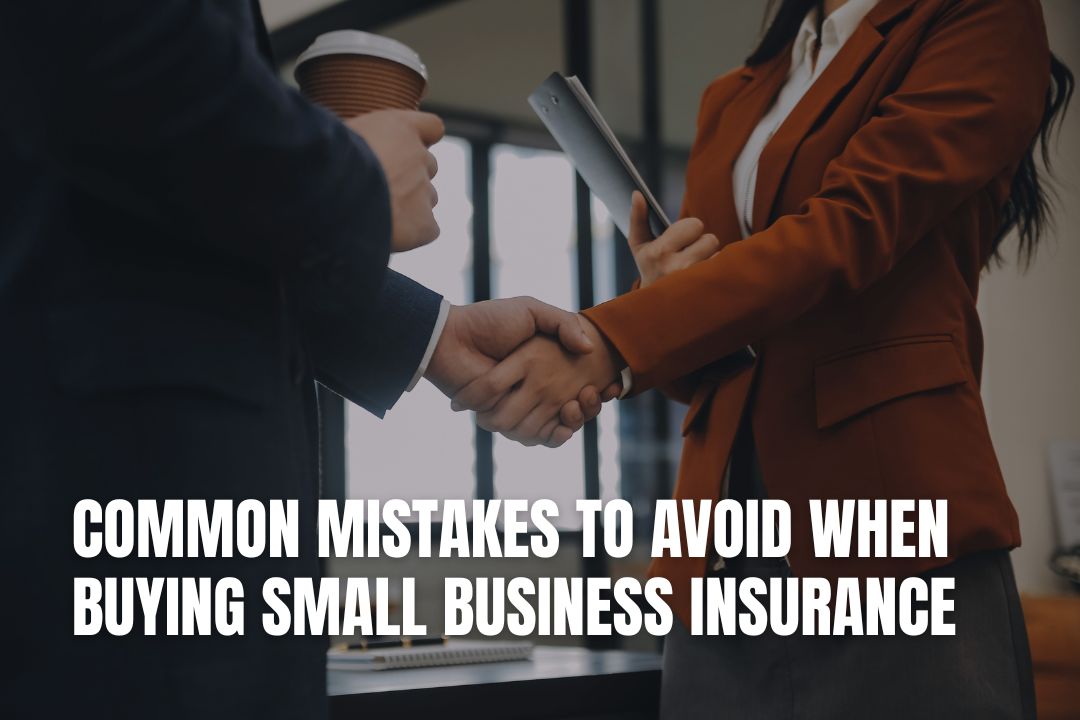
Editorial Disclaimer
This content is published for general information and editorial purposes only. It does not constitute financial, investment, or legal advice, nor should it be relied upon as such. Any mention of companies, platforms, or services does not imply endorsement or recommendation. We are not affiliated with, nor do we accept responsibility for, any third-party entities referenced. Financial markets and company circumstances can change rapidly. Readers should perform their own independent research and seek professional advice before making any financial or investment decisions.
Many business owners think about growth and profits, but forget about protection. Insurance plays a big role in keeping a company safe, yet many people make mistakes when buying it. These mistakes can cost a lot of money and cause stress later.
When choosing small business insurance, some owners believe any policy will do. The truth is that every business is different, and so are its risks. Buying the wrong coverage can leave a company exposed. In this article, we will look at the mistakes people make when buying insurance and how to avoid them.
Every business has its own risks. A bakery has fire hazards, while a small office may face data security issues. If you buy insurance without looking at your exact situation, you might miss important protection. It is important to ask yourself what problems could hurt your company. Think about the value of your property, the services you provide, and the industry you work in. When you clearly understand your risks, you can choose coverage that matches your business instead of relying on a standard plan.
Saving money is important, but going for the cheapest plan can backfire. A low-cost policy might not cover everything you need. At the time of a claim, you may realise it does not provide enough support. Instead of looking at price alone, pay attention to the benefits. Sometimes paying a little more brings stronger coverage and better security. Insurance should be a safety net, not just a small monthly expense. The value is in how well it helps when something goes wrong.
Many people rush through the paperwork and skip reading the details. Policy exclusions are sections that explain what is not covered. If you ignore them, you may believe you are protected when you are not. Before signing, read the terms carefully. Check what situations or damages the policy leaves out. If something important is missing, ask if you can add coverage or look for a different plan. This step can prevent disappointment later when filing a claim.
Businesses grow and change over time. You may hire more staff, add new services, or open another location. If your insurance stays the same, it may no longer fit your company. This leaves you underinsured and unprepared for new risks. Make it a habit to review your coverage every year or after major changes. Updating your policy ensures that your protection grows with your company. This way, you will not be caught off guard when you need to use it.
Many business owners focus on protecting property like buildings or equipment. While this is important, liability coverage is also equally important. A lawsuit or accident can bring heavy costs, and without protection, the burden falls directly on your company. Liability coverage helps pay for legal fees, medical bills, and damages if your company is held responsible. It acts as a shield that can keep your business safe during unexpected problems. Without it, even a small claim could harm your finances.
Buying small business insurance is more than checking a box on a list. It is about building security for your company so it can survive hard times. By avoiding common mistakes, you can make smarter choices and get coverage that truly works. When you select an insurance policy with care, you give your company the protection it needs for a safer future.
The cheapest policy often comes with significant drawbacks, such as high excesses, low coverage limits, or critical exclusions. While it saves money upfront, it could leave your business financially exposed if a serious incident occurs. It's better to balance cost with the actual value and protection offered.
You should review your insurance policies at least once a year. It is also essential to reassess your coverage whenever your business undergoes a significant change, such as moving premises, hiring more employees, or launching a new product or service.
Property insurance protects your physical assets, like your building, equipment, and stock, from events like fire or theft. Liability insurance, on the other hand, protects your business against claims of injury or damage caused to others, covering legal fees and compensation costs.
Policy exclusions detail what your insurance will not pay for. If you don't read them, you might assume you are covered for a specific event when you are not. Understanding these limitations helps you identify gaps in your coverage that you may need to address with additional policies.